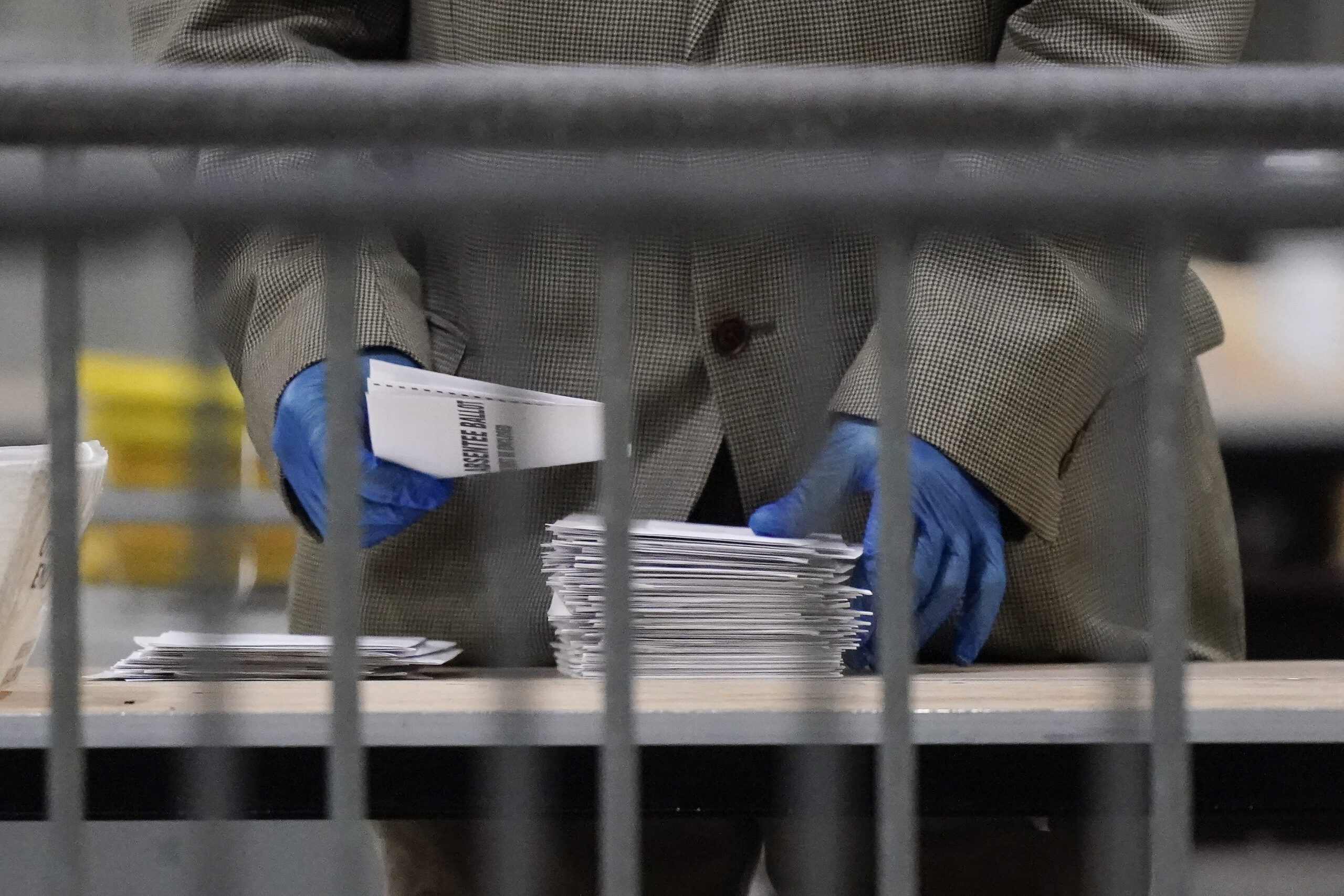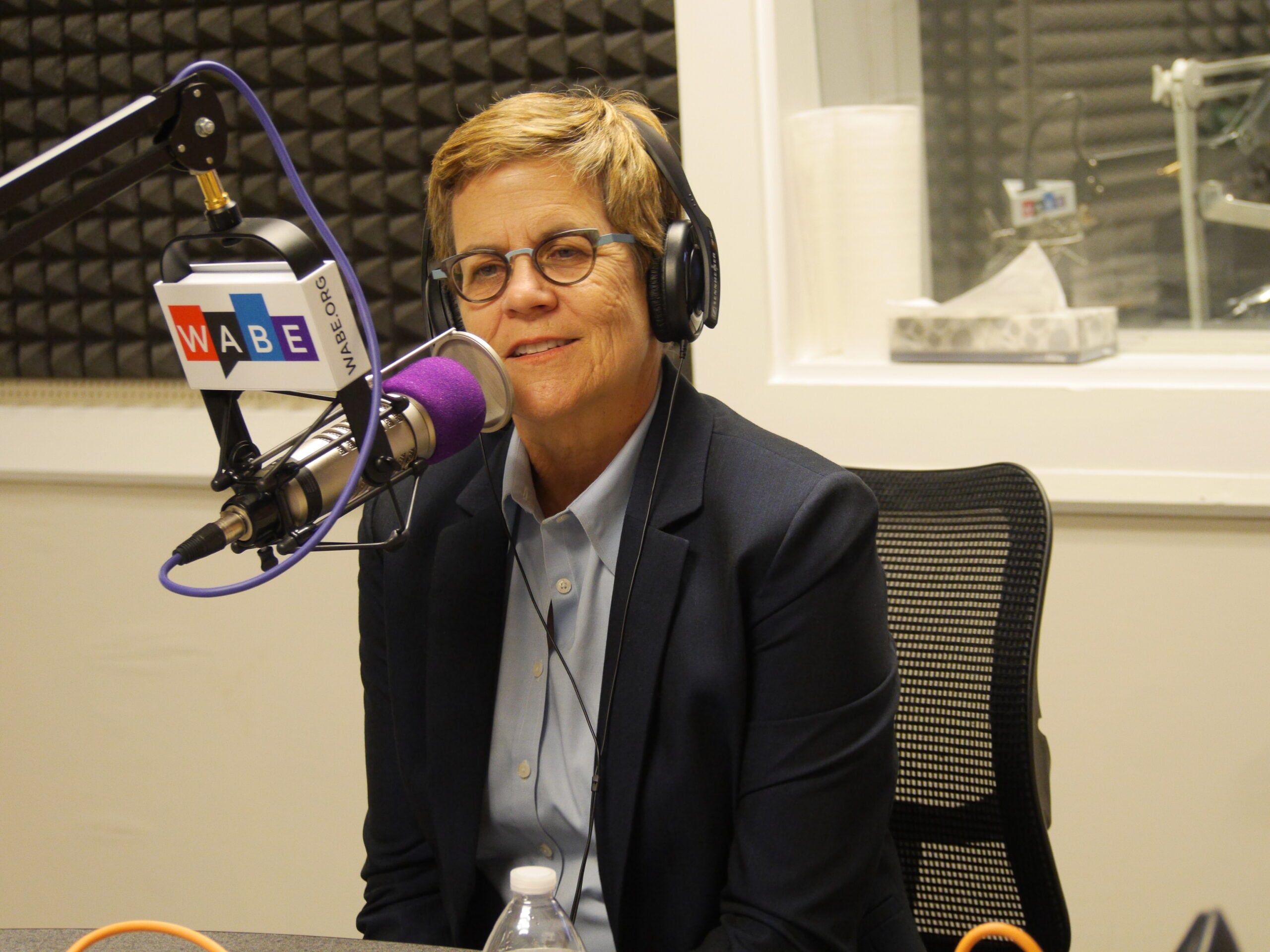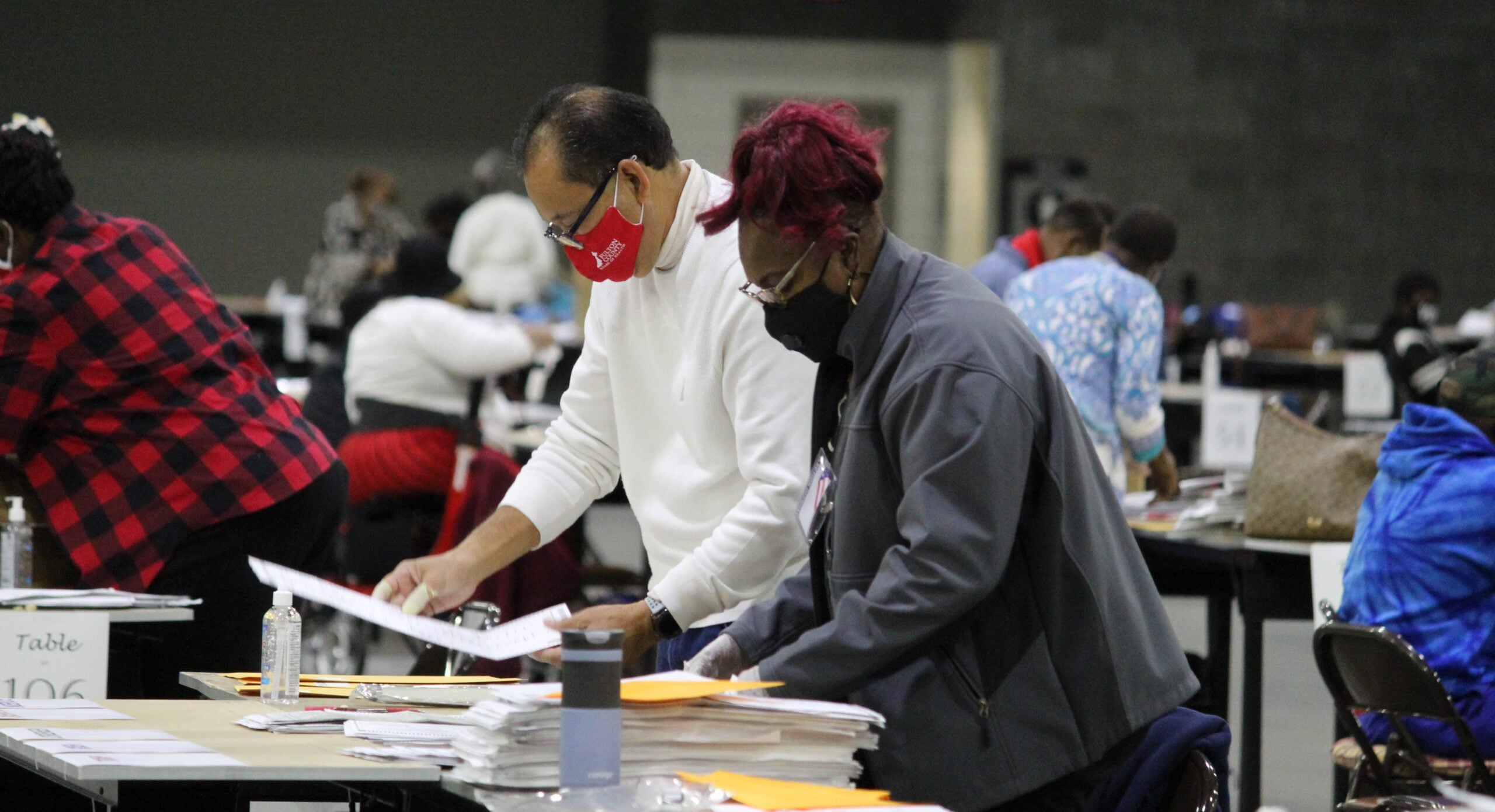This coverage is made possible through Votebeat, a nonpartisan reporting project covering local election integrity and voting access. The article is available for reprint under the terms of Votebeat’s republishing policy.
With national attention on Georgia for the Senate runoffs, there has been a new round of claims that Georgia’s election system is wrought with fraud. Many of those claims have come from President Donald Trump.
The accusations continue to be made without proof and despite reassurances from the Secretary of State’s office.
At a press conference on Tuesday, state elections official Gabriel Sterling said that, of the 2,648 polling places across the state, less than 0.2% of touchscreens and 0.1% of poll pads experienced malfunctions throughout the day.
“We’ve seen nothing that seems widespread, nothing that seems real in any way, shape, or form, quite honestly,” Sterling said about fraud and voting irregularities.
He specifically refuted claims from the President that thousands of unexpected ballots were “showing up out of nowhere.”
“We have known since last week that there were going to be 2,073,000 and some odd votes that were going to be in the advance bucket because that was how many were cast,” Sterling said. “The president continues to say ‘Oh they’re finding ballots, these were advanced and came out of nowhere.’”
Although counties were instructed to begin processing absentee ballots a week before the election, they were not permitted to begin counting until after polls closed. Several larger counties are still completing their count of absentee, overseas and provisional ballots.
The President also tweeted early Tuesday afternoon that voting machines were down for more than an hour in one Georgia district.
The issue he was referring to took place in Columbia County, where election director Nancy Gay said poll workers could not access the poll pads at 30 of 47 precincts when voting started in the morning. According to her, the issue was fully resolved by around 10 a.m., hours before the President’s tweet, and there were emergency paper ballots available the entire time.
At a rally Monday, Trump supporters repeatedly expressed concerns that Dominion voting machines have been changing votes from Republican to Democrat. Sterling said this is no truer than the claim that Russian hackers changed votes in 2016, illustrating what he said is the bipartisan nature of the problem.
While Republicans have been observing to witness any cases of voter fraud, Democratic and progressive organizations have been focused on preventing voter suppression, which they also say took place Tuesday. However, most cases were unconfirmed or resolved quickly.
“There are many problems that we’ve found throughout our monitoring activities,” said Helen Butler, executive director of the Georgia Coalition for the People’s Agenda, in a press call Tuesday.
Butler mentioned the issue in Columbia County but also said she had received reports of voter intimidation. According to her, in one case, a voter complained of being ticketed by police, and, in another, the voter said someone was taking photos of license plates in the parking lot of the polling place.
Activists on the call also brought up Cobb County, where voters reported two precincts were not issuing provisional ballots to voters who turned up at the wrong polling place, as they are supposed to do. According to Cobb County elections director Janine Eveler, when she became aware of the issue, she contacted the poll managers and instructed them to do so.
“We don’t have a sense as to how many voters were affected or whether voters left due to not being provided a provisional ballot,” said Harold Franklin, Chair of the Georgia Election Protection Hotline.
According to Franklin, his organization also received calls from a manufacturing company in Butts County where workers reported they were not being permitted time off to vote. However, he said, when Election Protection followed up with the company, they had already agreed to let employees leave early.
Polling precincts in a handful of counties decided or were ordered by judges to remain open past 7 p.m. due to minor technical issues that caused late starts. They were all closed within an hour of the original end time, and the average wait time across the state was one minute for much of the day, although some locations did see a line form just before polls closed.








